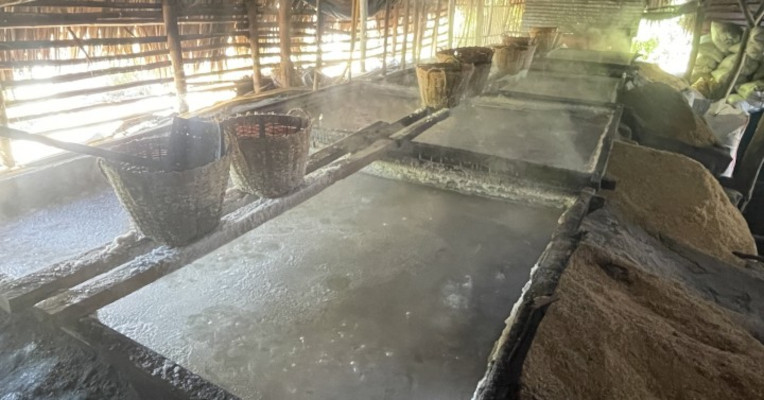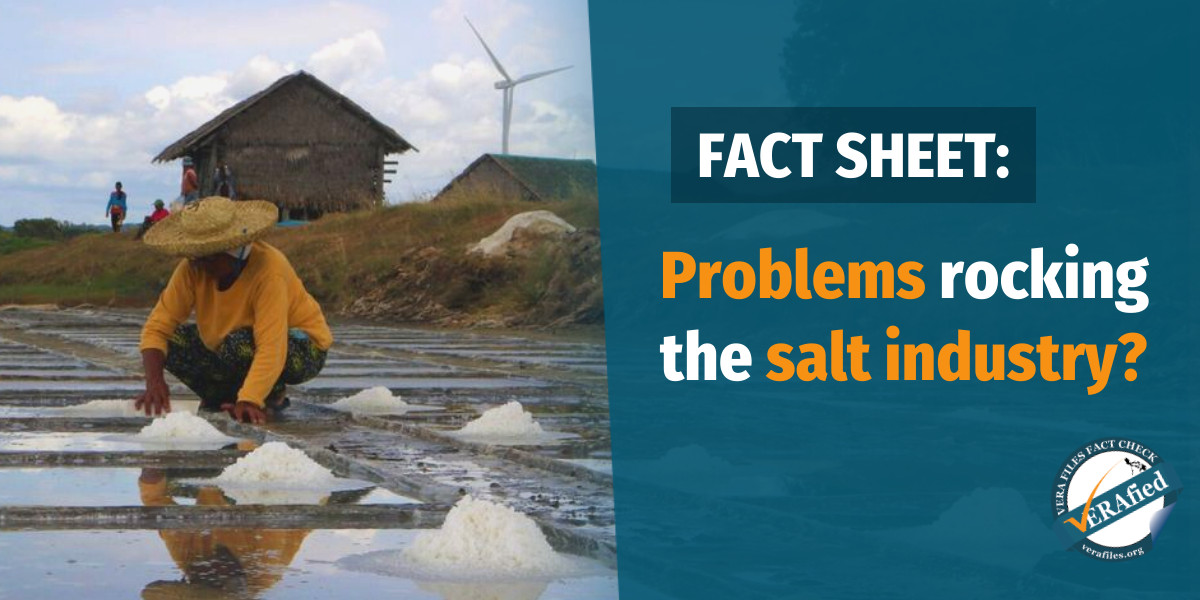After almost three decades since the enactment of the salt iodization law, or the ASIN Law, some legislators are mulling over incentives to revive the local salt industry and cure the “insanity” behind the policy requiring the production and sale of iodized salt only.
Sen. Cynthia Villar, chairman of the Senate Committee on Agriculture, Food and Agrarian Reform, said in a recent public hearing that it was nonsense to require local production of iodized salt only while the country imports non-iodized salt from Australia.
Republic Act 8172, known as an “Act for Salt Iodization Nationwide” (ASIN), requires the addition of iodine to salt intended for animal and human consumption to eliminate micronutrient malnutrition, particularly iodine deficiency disorders, which remain as a public health concern in the country. One of the most common effects of iodine deficiency is goiter, the irregular growth of the thyroid gland.
Iodine is also essential for brain development. We sometimes joke that a person who has difficulty comprehending or lacks common sense is iodine-deficient.
The ASIN Law was enacted in December 1995 by then president Fidel Ramos. One of the top local brands of iodized salt is named after him.
But while recognizing the “wisdom” in passing the law as a health measure more than 27 years ago, salt industry leaders have been appealing to Congress since last year to have it amended. Others want it repealed. They want the iodized-salt-only restriction lifted and for them to be allowed to also produce natural sea salt.
Danilo Faustino, president of the Philippine Chamber of Agriculture and Food, said the ASIN Law was needed to address the problem of iodine deficiency disorders, but it should not have stopped the production of the natural sea salt.
“There are 14,000 uses of salt for food manufacturing, pharmaceutical, chemical and other industries, as raw material. [The late senator and Health secretary Juan] Flavier espoused the use of iodized salt. There’s nothing wrong with that, but there are other uses for non-iodized salt. That’s the fault of the law,” Faustino said in a broadcast interview.
Villar admonished those who “influenced” Congress to enact RA 8172. She said in a mixture of English and Filipino: “You should have allowed the local non-iodized salt producers to continue and allowed some manufacturers not to iodize if you’re going to import non-iodized salt and then require the industry to iodize. What kind of [lawmaking] is that? Why was this law passed? … You killed the salt industry.”
Senate Majority Leader Joel Villanueva, the author of Senate Bill 1450 seeking to amend the ASIN Law, said it was embarrassing for a country blessed with more than 36,000 kilometers of shoreline — the fifth longest in the world — suitable for salt-making to be importing 93% of its salt requirements.
SB 1450 is envisioned to revive the local salt industry, increase the productivity and income of local salt producers, and preserve the country’s local and traditional production techniques, among other things.
Villanueva said the ASIN Law “became a deterrent in the development of the local salt industry,” instead of promoting it. “It has neglected to develop new areas and invite new investors. It made all salt food-grade. In 2021, it was reported that we only produced 7% of our salt requirements and imported 93%, or 550,000 metric tons,” he added.
Iodized salt is far more expensive at roughly P40 per kilogram while natural rock salt is just around P10 to P15 per kg. Yes, you can still buy rock salt in the public markets even if its production has long been considered illegal. But the sellers have not been apprehended for violating the law.
Data submitted to the Senate committee show that the country used to produce 240,000 metric tons of salt in the 1970s, but this had gone down to only 43,749 MT in 2020, and the country had to import 546,871 MT.
According to the Philippine Association of Salt Industry Networks, the country’s average salt consumption is at 630,000 MT, of which 530,000 MT are for human consumption and others are for coconut fertilizer and animal feeds, among others.
From the discussions on the situation of the country’s salt industry, it is obvious that the problems over low production, dependence on importation, rising prices and other concerns are largely due to long years of government neglect, in addition to the effects of climate change, globalization and urbanization.
Industry leaders complain that the promised assistance in research and loans, technology transfer and incentives in the production, marketing and distribution of iodized salt did not materialize.
Once the ASIN Law is amended, how can we be sure that the remedial provisions will be implemented? Several of the country’s laws were crafted with good intentions, but poor implementation sometimes creates more problems.
Perhaps legislators should consider addressing the mismatch between the existence of good laws and their actual implementation by including punitive actions against those who would fail to carry out specific provisions. They probably need to consume more iodized salt to make sure that laws are properly implemented.
The views in this column are those of the author and do not necessarily reflect the views of VERA Files.
This column also appeared in The Manila Times.

